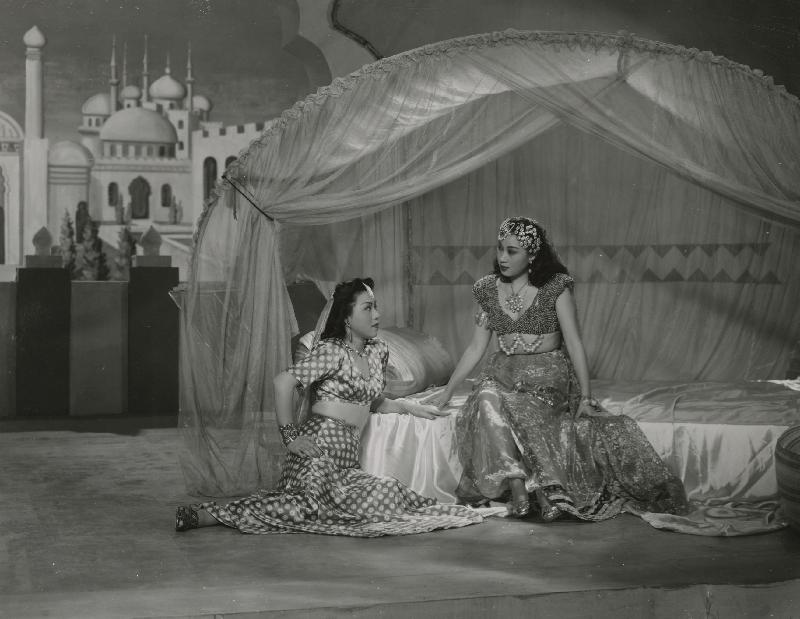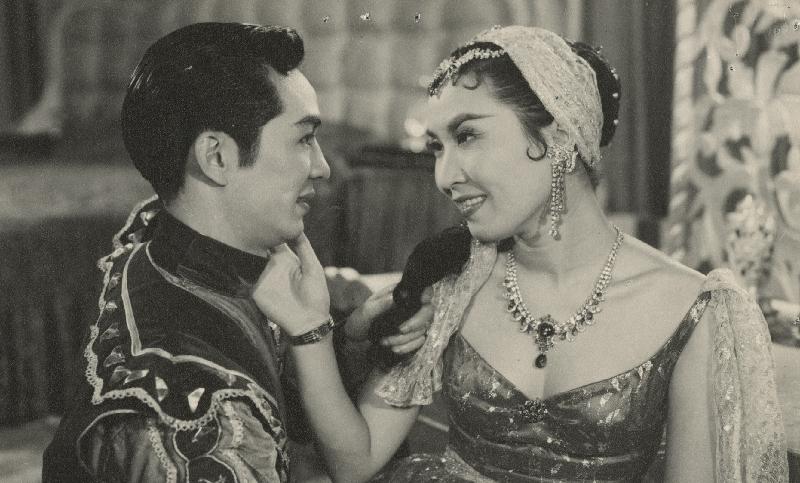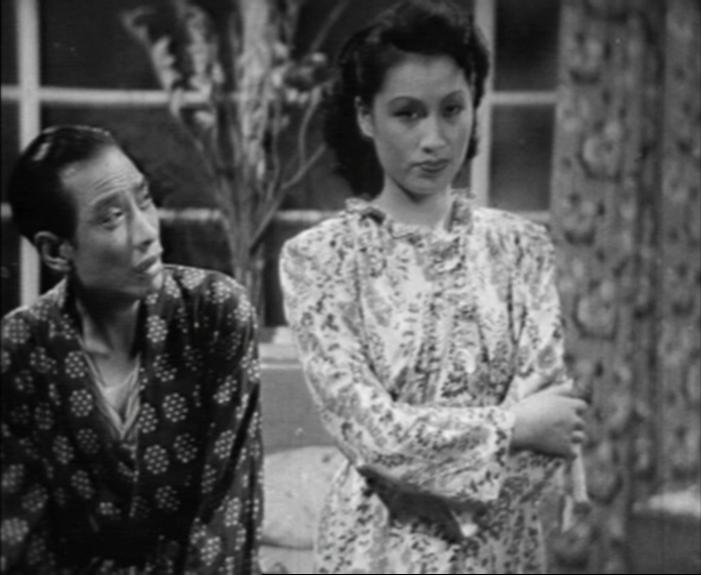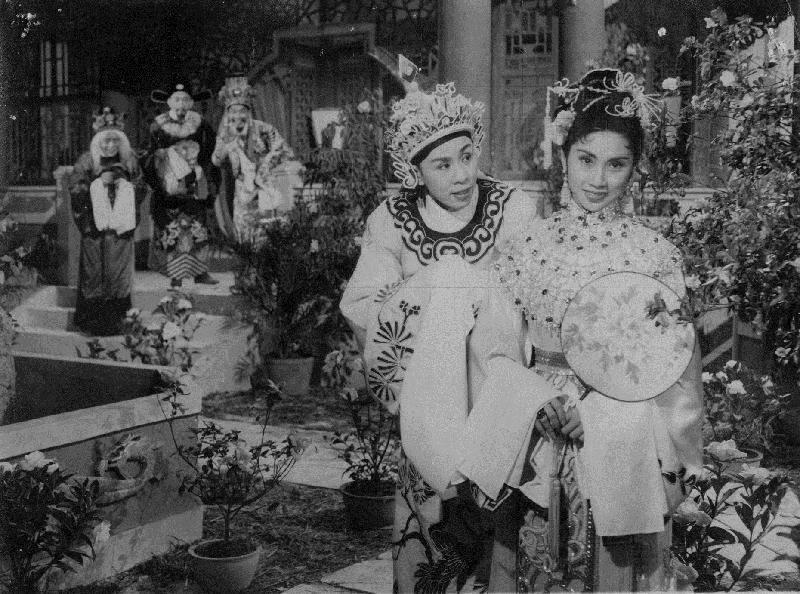The Hong Kong Film Archive (HKFA) of the Leisure and Cultural Services Department will present "Worth a Thousand Words: Adaptations of Foreign Literary Classics" as part of its "Archival Gems" series. From February 10 to September 8, two films adapted from the same foreign literary classic will be screened each month. Seminars will also be held on the screening days to explore how different filmmakers adapted the classics and examine the cross-boundary interaction between the films and the literature.
The 16 selected films were adapted from a wide range of literature genres including a folktale, a fairy tale, novels and dramas. The Middle Eastern folktale "One Thousand and One Nights" was adapted to make the Western film "The Thief of Bagdad" (1924), and the latter inspired Hong Kong Cantonese opera and film writer Ma Si-tsang to create the Cantonese opera "The Prince of Thieves". Luk Bong then adapted the opera into a film with the same title (1958), in which a thief hides his identity in a competition for a chance to marry the princess. They fall in love even though the thief's identity is later revealed. Later, caught by an evil prince, the princess is rescued by her lover. As in the original "One Thousand and One Nights", the princess in "New Arabian Nights" (1947), directed and scripted by Dan Duyu, is sold but luckily rescued in time.
The well-known German fairy tale "Snow White and the Seven Dwarfs" has been adapted into various art forms. The HKFA will screen the Cantonese movie "Snow White and the Seven Fellows" (1955), a light-hearted musical romance in which a bitter stepmother tries to make her stepdaughter's life miserable. In the Chinese setting, disappointed by her assassin's failure to kill the stepdaughter in a temple, the stepmother prepares a Chinese BBQ pork bun as a second pitfall. But the stepdaughter is ultimately rescued by a rich young man riding a white horse. "Snow White" (1916), the first movie to originate from the fairy tale, was lost for almost 80 years, but a copy was found in Amsterdam in 1992. Although missing some parts and silent, this version is certainly worth watching after being restored and given English inter-titles.
When it was published, the American novel "Sister Carrie" was controversial as the main female character is not punished for cohabiting unmarried, for being a home-wrecker and leaving her lover for money. In "Carrie", which debuted in 1952, the story is "cleaner" and Carrie becomes a tragic character caught in circumstances beyond her control. "Eternal Love" (1955) is recognised as the Hong Kong version of "Sister Carrie". The male leading character marries a rich lady and is constantly insulted by his wife's family. But he cannot help falling in love after getting to know Carrie. However, the relationship does not last when faced with life's challenges. With an open ending, viewers are left to wonder whether the lovers will reunite.
The famous Russian novel "Anna Karenina" by Leo Tolstoy gives Anna a sweet marriage at the beginning, though her husband turns out to be overly controlling. Consequently, she has an affair with a young soldier and bears his child. Surviving obstructed childbirth, Anna requests a divorce but is rejected. She runs away from her husband and suffers from his contempt. Finally, Anna commits suicide when abandoned by the soldier. As in the original, Anna of "Anna Karenina" (1935) runs away with her forbidden love and sacrifices her life. "Anna" (1955) is the only Chinese adaptation of the novel. Though the Chinese Anna is loyal and obedient, she is presumed to have an affair and is expelled by her autocratic husband. The story depicts women's agony in a patriarchal society.
"Tess of the d'Urbervilles" is the sad story of a young lady born in an English village, who is rejected by her lover after disclosing her secret of being raped in her early years, and is finally executed for killing the rapist when he harasses her again. The two selected Mandarin films, "The Wedding Night" (1956) and "A Night to Remember" (1961) both feature brides-to-be writing a letter to their lovers about their tragedies of being raped. However, neither letter reaches its intended receiver and the relationships are almost ruined. Luckily, the two men learn the truth and both couples have a happy ending.
William Shakespeare's drama "The Taming of the Shrew" describes the unusual strategies that a husband uses to "tame" his wife. The Cantonese opera masterwork originating from the drama later inspired the creation of the movie "Unruly Princess, Arrogant Husband" (1957). A rude princess who angers the neighbouring country is arranged by the emperor to marry a marshal who uses tricks to force her to apologise. The unwilling princess is finally tamed by her husband, but the power struggle between the two is intriguing. In the modern comedy "The Spoiled Princess" (1948) the male chauvinism of the original play is diluted. Sometimes quarreling yet accommodating each other, the spoiled princess played by Hung Sin Nui and her husband (played by Ma Si-tsang) sometimes quarrel but still work out a harmonious relationship.
The renowned Russian comedy "The Inspector General" is an ironic story about a group of corrupt officials mistaking a junior officer who loves gambling as a government inspector. They dote on the fake inspector without gaining any benefits but expose their own hypocrisy. When the real inspector arrives they are full of regret. The storyline remains similar in the Hong Kong movie "The Inspector General" (1955), with corrupt officials flattering the wrong inspector and allowing him to reap profit. A Chinese New Year movie, "The Prince Incognito" (1961) features a scholar posing as a key official who uses his identity to help the poor instead of cheating others. However, he is jailed when his real identity is disclosed. Unexpectedly, the real key official is the scholar's long-lost twin brother. The twins reunite and are promoted in their career paths.
"The Beauty and the Dumb" (1954) and "Precious Daughter" (1956) are adapted from the French drama "The Man Who Married a Dumb Wife". The three story lines are quite different except that the three leading actresses are all dumb (voiceless) at the beginning but regain their voices as the films progress. In the original, the wife becomes too talkative after regaining her voice and the annoyed husband prefers to become deaf. The dumb female protagonist in "The Beauty and the Dumb" falls in love at first sight with a bank heir. To help his dumb daughter land a rich husband, the greedy father appropriates a large sum of money to cure her. Luckily however, the bond between the couple is strong enough. "Precious Daughter" follows a woman who becomes dumb after a road accident. After getting married, she then fails to please her sister-in-law, which almost ends her marriage. Frightened again, she regains her voice as the story comes to an end.
Each pair of screenings will be accompanied by a seminar hosted by film critics and scholars Lam Kee-to, Poon Kit-man, Dr Mary Wong, Ng Wing-han, Joyce Yang, Professor Chan Sau-yan, Cheng Ching-hang and Dr Yau Ching. The seminars are conducted in Cantonese. Admission is free.
"New Arabian Nights", "The Wedding Night", "A Night to Remember" and "The Beauty and the Dumb" are in Mandarin. "Prince of Thieves", "Snow White and the Seven Fellows", "Eternal Love", "Anna", "The Spoiled Princess", "Unruly Princess, Arrogant Husband", "The Inspector General", "The Prince Incognito" and "Precious Daughter" are in Cantonese. "Carrie" and "Anna Karenina" are in English. "Snow White" is silent (with music accompaniment)."Snow White" has English inter-titles and Chinese subtitles. "Carrie" and "Anna Karenina" have Chinese subtitles. "The Beauty and the Dumb" has English subtitles. The others are without subtitles.
Tickets priced at $55 are now available at URBTIX (www.urbtix.hk). For credit card telephone bookings, please call 2111 5999. For programme details, please call 2739 2139 or visit www.filmarchive.gov.hk/en_US/web/hkfa/programmesandexhibitions/2019ag-foreign/index.html.
Follow this news feed: East Asia









